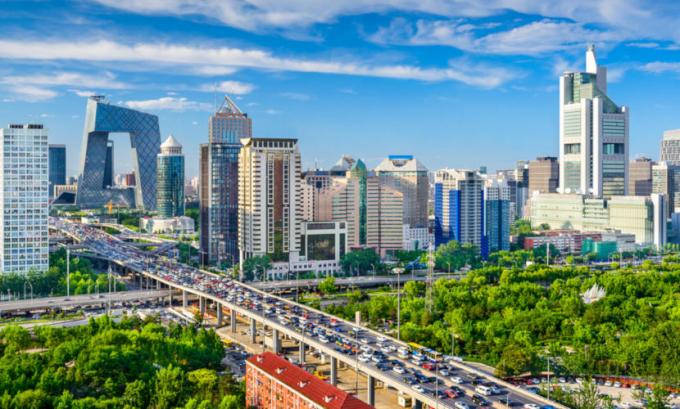the generation of informal work it is a characteristic of the transformation processes that work has undergone over the years. These transformations happen due to the process of globalization, with new jobs, new connections, interactivity and practicality.
Thus, informal jobs have specific characteristics, such as the lack of a formal contract, rights labor benefits provided for by law, social security benefits, such as maternity benefits, sick pay, among others. So, it's that work activity that is not regulated by the state.
Read too: Demographic density - index that calculates the number of inhabitants per km2
Causes of informal work
The causes of this type of work are the most varied. It is an increasingly present reality in society, especially in emerging countries. Still, before looking at some of its causes, it is necessary to briefly understand the differences between structural unemployment and cyclical unemployment.
structural unemployment is the one that occurs with the adoption of new technologies at some stage of the process
or in some function performed in the labor chain. As examples we can cite the invention of the computer, which left people who were skilled with typewriters, typists, jobless.
Already situational unemployment occurs when there is an economic crisis in the country, whether internal or external. This type of unemployment is easier to be reversed, as it happens at a specific moment of crisis. When the economic situation improves, jobs tend to return.
Do not stop now... There's more after the advertising ;)
Based on this, we can mention the two types of unemployment as one of the causes of informality, an economic cause. The worker loses his job and is unable to readjust in another function (structural unemployment), or, in many cases, employers decide to replace it with cheaper labor when the situation improves (unemployment situation).
Another cause can be found in society, a causeSocial. Many people do not get a good education, schooling. Because of this, they are not qualified to apply for a formal position, which leads to formal employment to ensure their livelihood and whoever else depends on them.
We can also mention the population migrations. In many situations, people leave a location in search of more developed regions to improve their quality of life. However, upon arriving in these regions, they do not have the required qualification, or are victims of prejudice (xenophobia), and do not get a job, moving into informality.
Advantages and disadvantages of informal work
Informal work can have some advantages, but it also has a number of disadvantages.
Like benefits, we can mention the generation of almost immediate income from possible sales; turnover in labor functions, increasing the range of work options; there is no boss, as the worker carries out his activities on his own; flexibility in schedules; and a possible change in income, so that more can be earned in another month.

However, this last advantage is also a disadvantage, as this fluctuation in income creates uncertainties in the person's financial planning.
Others disadvantages can be found in this type of work, such as: the absence of a formal contract, paid vacation, and assistance in case of illness or unforeseen events; no social security contribution, which hinders retirement; not having a fixed income, which makes it difficult to ask for bank loans or financing; search for formal jobs by many informal workers; constant concern with the progress of the economy because they are not covered by labor laws, among others.
Among advantages and disadvantages, the latter are greater, as the informal worker is marginalized by public policies for not actively contributing to the State. This shows us that formality, even with low wages, is one of the best ways to generate jobs.
See too: HDI – measure of a country's development
Examples of informal work
Among workers who fall into informality, we can cite several examples, each within a branch of the economy. On many occasions, they are essential for the organization of the economy and survival of small towns, such as streets, neighborhoods and small towns. This importance is due to the fact that some products can be found cheaper by these informal workers, such as food sold in local fairs.
See some examples of informal workers.
Door to door salesmen
Street vendors
street vendors
autonomous
Recyclable material collectors
application driver
marketers
Informal work in Brazil
According to the Brazilian Institute of Geography and Statistics (IBGE), in support of the National Continuous Household Sample Survey (PNAD), data on informal workers are divided into two categories: work on their own (self-employed) and the ones that do not have a formal contract. The first group concentrates 20% of the Economically Active Population, the PEA. The second has 12% of the PEA. The total number of these informal workers is almost equal to those with a formal contract — 31%.
Also in these data, we can add the informal workers who are not rewarded, in monetary terms, for their work: the unpaid informal workers. If we add up, we have the total of 41% economically active living informally.
This latest survey, released in September 2019, found more than 36 million people under these informal conditions, whether working on their own or working without a formal contract.
Difference between formal and informal work
Formal and informal work have clear differences, starting with organization, regulation, benefits and formal documentation.
O workerformal has the professional record in his work card, which guarantees you positive points in relation to the informal. A formal contract allows the formal worker paid vacation, thirteenth salary, leaves paid medical fees, indemnities in the event of being fired without cause, and other benefits provided for in Consolidation of Labor Laws (CLT). With this, this worker is more financially insured, as labor laws will be complied with between both parties, employer and employee.
Already in informal work there is no record of the profession in the formal contract. This worker is not entitled to the benefits provided by law that the formal worker has. Thus, the informal is financially helpless in case of any unforeseen events, such as illness, pregnancy, accidents, and other adversities.
Many informal jobs are considered precarious, given the non-regulation of functions and the lack of welfare benefits, as is the case of the person who sells water at the traffic light, due to example.
Also access: What is GDP?
solved exercises
Question 1 - (PUC Mines)
street vendors
Blessed be the pennie toy peddler
The one that sells colored balloons […].
[…] Joy of the sidewalks
some speak through their elbows
[…]
Others, poor things, have their tongues tied.
All, however, know how to use the strings with the sense
naive of useless demiurges.
Manuel Bandeira
The formal urban labor market, as is known, has not been able to absorb the contingents of the unemployed. The previous excerpt serves to illustrate this reality.
Select the alternative that best portrays the current unemployment and underemployment problem.
a) The modernization of productive activities, in the primary and secondary sectors, has left employment in the tertiary sector of the economy as the only alternative.
b) As they sell useless items, street vendors or hammer workers have low remuneration for their work.
c) The economic crisis combined with the restructuring of various branches of the economy has contributed to the expansion of informal activities.
d) By closing jobs in the formal sector, technological and managerial innovations stimulate the generation of creative forms of employment.
Resolution
Alternative ç. Informality is associated with economic crises and new jobs (restructuring the economy), which generates cyclical unemployment and structural unemployment, respectively.
________________
Question 2 - Informality is increasingly present in societies in emerging countries, such as Brazil. There are several causes that contribute for the number of informal workers to increase considerably. Check the alternative that contains an explanatory feature of the increase in informality.
a) The emergence of new technologies generates employment and income for the entire society, not interfering with unemployment rates.
b) Adhering to new forms of work as well as technological innovations can contribute to the increase in informality.
c) Informality increases only in developed countries due to the high level of education.
d) Informal jobs have more financial guarantees for those who carry them out.
Resolution
Alternative B. New technologies provide new ways of working, such as application drivers. This function is part of informality, as there is no labor insurance provided for by law.
By Attila Matthias
Geography teacher



